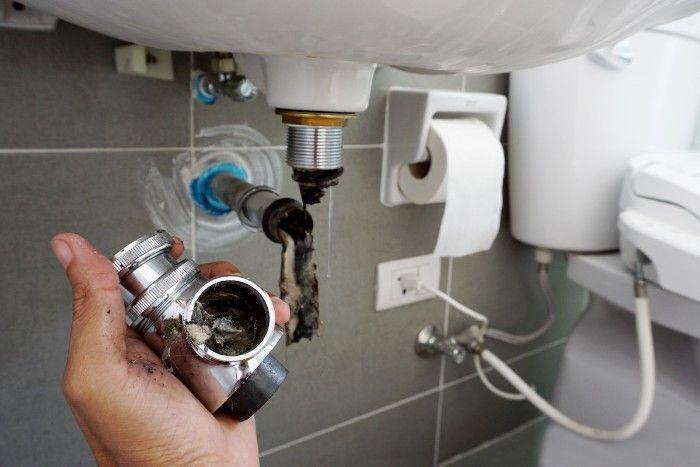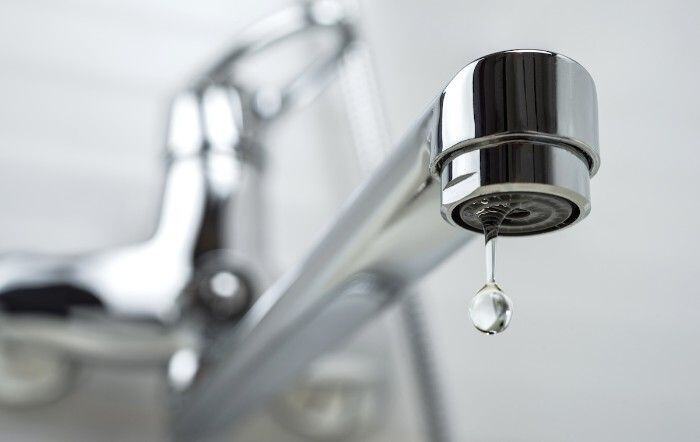It's a situation that many of us have experienced: you're sitting in your cozy living room, enjoying a quiet evening with your family, when suddenly you hear a loud noise. Rushing to investigate, you discover that a pipe has burst in your home, causing water to gush uncontrollably. What was once a peaceful evening has now turned into a costly nightmare.
Unfortunately, this is a scenario that many homeowners and property managers face all too often. A burst pipe can cause extensive damage to the surrounding area, resulting in water damage, structural damage, and even mould growth. That's why it's essential to understand the reasons behind these pesky pipe bursts and take preventative measures to avoid them altogether.
What Causes Burst Water Pipes?
Preventing burst pipes starts with understanding the root causes behind them. You can take the necessary steps to avoid these costly and inconvenient incidents by identifying the factors that lead to burst pipes.
The most common reasons for water pipes bursting include:
- Cold temperatures. Cold weather is often the culprit when it comes to a burst pipe. As temperatures drop, water inside pipes can freeze, leading to a buildup of ice that restricts water flow and increases pressure within the pipe. Eventually, this pressure can become too much, causing it to burst.
- Age and deterioration. Pipes, especially those made of older materials like galvanized iron or steel, can deteriorate over time due to rust, corrosion, or wear and tear. This can weaken the structural integrity of the pipes, making them more susceptible to bursting.
- Clogs and blockages. Accumulated debris, sediment, or mineral deposits can cause clogs or jams in pipes, leading to a buildup of water pressure. As the pressure increases, it can result in pipes bursting, especially in areas where the obstruction is severe or localized.

A blocked pipe is a common cause of burst pipes.
- High water pressure. Water pressure exceeding the recommended levels can put excessive stress on pipes. High water pressure is caused by various factors, such as faulty pressure regulators, water hammers (sudden changes in water flow), or even municipal water supply issues. When it happens, install a pressure-reducing valve to adjust the pressure to safer levels and prevent pipes from bursting.
- Poor installation or improper maintenance. If pipes are not installed correctly or maintained regularly, they may be more susceptible to bursting. Poor installation practices, such as insufficient pipe support, improper joint connections, or the use of low-quality materials, can weaken pipes over time and increase the likelihood of bursts.
- Ground movement or disturbance. The ground can shift due to earthquakes, soil erosion, or settling, putting stress on pipes and potentially causing them to burst. Poorly secured pipes or those that experience excessive ground movement are especially vulnerable to this type of damage.
Pipes can burst for various reasons, including freezing temperatures, age, and wear. Understanding the causes of burst pipes is important to minimize the risk of these incidents occurring.
What You Can Do After Your Pipes Burst
If your pipes do malfunction, it can be a stressful situation that requires prompt action to mitigate damage and restore your home's functionality. Here are the steps to take after your pipes have burst:
- Shut off the water supply. The first and most crucial step is to immediately shut off the main water supply to your home to prevent further water damage. Locate the main water shut-off valve, usually found near the water meter, and turn it off. This will stop the flow of water and prevent additional flooding.
- Turn off electrical power. If the burst pipes have caused water to come into contact with electrical outlets, appliances, or wiring, shut off the electricity to the affected area to avoid the risk of electrocution. If you need help doing this safely, consult a qualified electrician.
- Assess the damage. Once the water supply and electricity have been shut off, assess the extent of the damage caused by the burst pipes. Inspect the affected areas for water damage, including interior walls, exterior walls, ceilings, floors, and belongings. Take photos and document the damage for insurance purposes.
- Remove standing water. Use buckets, mops, towels, or a wet/dry vacuum to remove as much water as possible if there is standing water. Dry out the affected area quickly to prevent mould and mildew growth.
- Contact a professional plumber. Have a licensed plumber assess the burst pipes, determine the cause, and repair or replace the damaged tubes. Only attempt to repair or replace pipes if you have the proper knowledge and experience.
- Speak with your insurance company. Notify your insurance company about the burst pipes and the resulting damage as soon as possible. They will guide you through the necessary steps to file a claim and may provide recommendations for reputable water damage restoration companies.
Dealing with burst pipes can be overwhelming, but taking prompt and appropriate action can help minimize damage and facilitate restoration. Remember to prioritize safety, seek professional assistance, and communicate with your insurance company.
How to Prevent Burst Water Pipes
Now that you know what can cause a burst pipe, there are steps you can take to help prevent it. Here are some of the most effective ways to reduce your risk of having a burst pipe:
- Insulate your pipes. Applying insulation to pipes can safeguard them from extreme temperatures, both hot and cold. Insulation can help prevent frozen pipes during winter and reduce condensation buildup during summer, two significant causes of burst pipes.
- Seal air leaks. Air leaks can cause chilly pipes, as cold air can seep into your home and reach your pipes. To prevent this, inspect your home for any gaps or cracks in doors, windows, walls, or floors, and seal them with weatherstripping or caulking. This simple step can effectively block cold air from reaching your pipes and minimize the risk of freezing.
- Drip faucets. When temperatures drop below freezing, leaving a few taps in your home dripping with lukewarm water is a good idea. The water flow helps relieve pressure within the pipes and can prevent them from freezing, potentially avoiding the costly and inconvenient damage that burst pipes can cause.

A dripping faucet can prevent frozen pipes.
- Avoid excessive water pressure. Intense water pressure can place unnecessary strain on your pipes and heighten the risk of bursts. To mitigate this risk, it's worth considering the installation of a pressure regulator. This device helps maintain safe and consistent water pressure throughout your home, reducing the likelihood of damage to your pipes.
- Drain and shut off pipes in vacant properties. For vacant properties, such as vacation homes or rental properties, prevent frozen pipes while you're away. One effective measure is to drain and shut off the water supply entirely. Doing so can significantly reduce the risk of frozen pipes and avoid the costly damage they can cause during your absence.
- Introduce warm air. If your pipes have burst due to a cold spell, warm up the affected area. Turn on your heat and adjust your thermostat to a higher temperature, and consider using space heaters if necessary. If the pipes are still frozen, directing a hairdryer to the affected area can help defrost it and restore proper water flow
For Professional Water Damage Restoration, Contact the PuroClean Experts
Dealing with water damage can be a major headache, especially when facing a burst pipe. Don't let the problem escalate; reach out to PuroClean for a helping hand! Our seasoned experts are always on standby, 24 hours a day, seven days a week. We work with lightning speed and unparalleled efficiency to tackle even the most challenging water damage restoration projects. Please call us today at (877) 261-7876 to locate the nearest PuroClean office near you. Trust us, you won't regret it!
